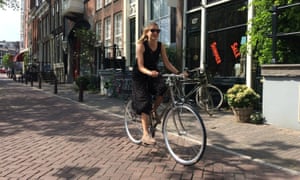You've probably heard the expression, "He/She could sell snow to the Eskimos/Inuits/Laplanders/any other native of a cold climate".
Believe it or not, Snowbrokers was "set up a few years ago to service the need of online snow sales for the Inuit community of Alaska". Wow! I wish I'd thought of that! I guess it's another one of those opportunities to get in on the ground floor of something that'll reach the sky that I missed.
Then again, people have come up with even crazier ideas for businesses. Like an Uber for hitmen: surge pricing is always in effect. Or an online social network for people who don't use the Internet. Or one of my favorites: an a capella singing group that only does death metal covers. All right, that's not technically a business idea, unless you believe that performers start groups only in the hope of making money. (And we all know that no performer with any integrity would ever think of that, right?)
OK, so at least we know Snowbrokers, Uber for hitmen, the social network and the a capella groups are jokes--just like the Swiss Navy. (I didn't find out until I tried to join! ;-)) Unfortunately, there are some things that sound like jokes but were conceived without irony or mirth, such as The Flat Earth Society and more than a few political campaigns. (Of the latter, there are some that we wish were jokes. I won't mention any names as I am trying to remain, ahem, apolitical.) Oh, and a Creationist theme park.
Hmm...Would all of these schemes have been funded by selling snow online to Inuits in Alaska? Hmm...Maybe the Samis of Norway would be a more lucrative market.
Or, perhaps, selling cycling in Amsterdam.
 |
| Anna Luten, Amsterdam's "bicycle mayor" |
"It is harder than it sounds," says Anna Luten. She would know better than perhaps anyone else: She is the "bicycle mayor" of the Dutch capital. She was chosen for the voluntary position (Her "real" job is that of brand manager for Giant's LIV line of bicycles for women.) last month by a jury of city officials and bike advocates.
In a city where there are as many bicycles as people, "Cycling is so normal for us that it becomes boring for us, and we neglect it," she explains. Because cycling is "not an identity like it is in other countries, it's just the way we get around", she says, in essence, that cyclists take their position ("because we ride a bike we own the roads"), and that of the city as a bike haven, for granted. Amsterdam's cycling infrastructure "has to improve for future generations", she asserts, because "There are almost too many cyclists and bikes." If things continue as they are, she says, "people will stop cycling because it won't be safe".
People will stop cycling because there are too many bikes on the road? That makes me think of Yogi Berra's observation about a restaurant: "Nobody goes there anymore because it's too crowded".
Seriously, though: She has a point. I mean, in how many other cities are there bicycle traffic jams? (In New York, where I live, and other cities, one of the reasons why we ride to work is that we can pedal around traffic jams instead of getting into them!) Also, because so many people ride to work, there aren't enough ferries, bridges and tunnels to take cyclists across the city's waterways. Starting more ferry lines isn't an ideal solution for those who depend on their bicycles to get to work, as the ferry rides --though picturesque and free for commuters-- are time-consuming. Building a new tunnel would be a very expensive and lengthy process, given the city's marshy soil. And talk of building a new bridge angers harbor boat operators, who fear they--especially those who conduct cruises--could lose out.
Finally, for all the publicity Amsterdam receives as a cyclists' utopia, one only has to cross the city's boundaries, or go into neighborhoods like Nieuw West with large immigrant populations-- to find people who don't share Anna's--and other Amsterdamers'--connection to the bicycle. Many of the immigrants come from places where people (especially women) didn't ride bikes. Others simply see cycling as unsafe and drive their kids to school. "[W]hen those kids hit 16, they get motor scooters, not bicycles," says Maud de Vries, who runs the Cycle Mayor program.
(I noticed something similar in Paris: When I cycled through la Goutte d'Or, into suburbs like Saint Denis and Montreuil (not to be confused with Montreuil-sur-mer) or even the bike lane on Boulevard Barbes, I did not see any other cyclists. In fact, I saw motor scooters--and a lot of pedestrians--in the Barbes bike lane.)
Some would argue that Copenhagen has overtaken Amsterdam as the world's most bicycle-friendly major city. To Anna Luten, "the rivalry isn't important, so long as each city is a good place to cycle." Her efforts, and those of people like Maud de Vries, come from the belief that "cycling has the power to transform". Such a transformation, she says, would mean that there are "more cities like Amsterdam, where cycling is so normal and accepted that we are not even aware of it."
Then, maybe, no one would have to sell cycling in Amsterdam--or anywhere else.

